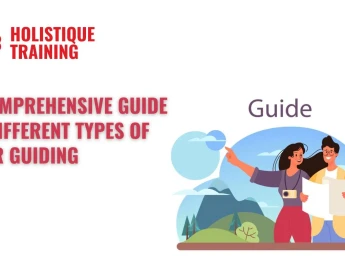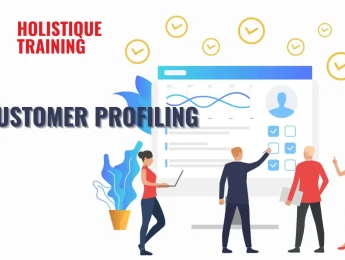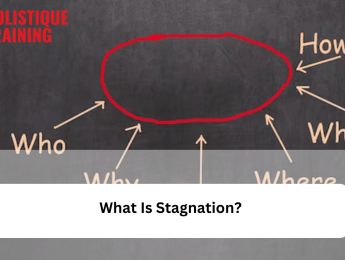- Table of Contents
- Introduction
- What is Tour Guiding?
- Why is Tour Guiding Important on a Trip?
- In-Depth Knowledge and Expertise
- Personalised Experience
- Safety and Convenience
- Cultural Bridge
- Storytelling and Engagement
- Efficient Time Management
- Access to Hidden Gems
- Problem-Solving and Assistance
- Enrichment of Group Dynamics
- What are the 10 Types of Tour Guiding?
- Historical Tour Guiding
- Local Tour Guiding
- Adventure Tour Guiding
- Nature Tour Guiding
- City Tour Guiding
- Park Tour Guiding
- Freelance Tour Guiding
- Language-Specific Tour Guiding
- Cultural Tour Guiding
- Reflect on Your Interests and Passions
- Evaluate Your Skill Set
- Consider Your Preferred Environment
- Identify Your Target Audience
- Seek Feedback and Observe Reactions
- What Skills Should a Tour Guide Have?
- Communication Skills
- Knowledgeable:
- Storytelling Ability
- Interpersonal Skills
- Problem-Solving Skills
- Time Management
- Flexibility
- Public Speaking
- Cultural Sensitivity
- Physical Stamina
- Tour Guide Salary
- Steps Needed to Get Started as a Tour Guide
- Gain Relevant Education and Knowledge
- Obtain Certifications
- Develop Essential Tour Guiding Skills
- Gain Practical Experience
- Building a Professional Network
- Create a Portfolio and Online Presence
- Start Small and Build Your Clientele
- Seek Continuous Improvement
- Conclusion
Introduction
Travelling is one of the most enriching experiences in life. Each journey offers a unique opportunity to immerse oneself in new cultures, landscapes, and histories. But what truly transforms a trip from a simple visit to a profound experience is often the presence of a knowledgeable and passionate tour guide. Whether you’re exploring ancient ruins, wandering through a bustling city, or trekking through a dense forest, a skilled tour guide can bring the place to life, providing insights and stories that deepen your understanding and appreciation of the destination. This blog post delves into the fascinating world of tour guiding, exploring its importance, the various types of tour guides, and how you can embark on this rewarding career.
What is Tour Guiding?
Tour guiding is more than just leading a group from one point to another. It’s the art of storytelling, the ability to connect with people and the skill to convey the essence of a place in a way that resonates with the audience. A tour guide serves as an ambassador of the location, translating its history, culture, and significance into a narrative that engages, educates, and entertains.
At its core, tour guiding involves providing travellers with information about the sights, sounds, and experiences they encounter during their journey. This information can range from historical facts and cultural insights to practical tips and recommendations. A tour guide’s role is to ensure that the visitors see the place and feel its spirit, understand its significance, and leave with memories that last a lifetime.
Why is Tour Guiding Important on a Trip?
Our guidance plays a crucial role in enhancing the overall travel experience, providing value that goes beyond simply showing travellers around. Here’s why tour guiding is important on a trip:
In-Depth Knowledge and Expertise
Tour guides are experts in their field, possessing extensive knowledge about the destination, its history, culture, and significant landmarks. They provide context and deeper insights that travellers might not gain from guidebooks or self-guided tours.
Personalised Experience
A good tour guide tailors the tour to the interests and needs of the group. Whether it’s focusing on history, art, cuisine, or adventure, guides can adjust the itinerary and narrative to create a more engaging and relevant experience for travellers.
Safety and Convenience
Navigating a new place can be challenging, especially in unfamiliar environments or regions with language barriers. Tour guides ensure the group's safety, help avoid common tourist pitfalls, and make logistics such as transportation, tickets, and entry into attractions smoother and hassle-free.
Cultural Bridge
Tour guides often serve as cultural interpreters, helping travellers understand and respect the local customs, traditions, and social norms. This cultural bridge enriches the travel experience and fosters a more respectful and immersive interaction between visitors and locals.
Storytelling and Engagement
A tour guide’s ability to tell stories and bring history to life transforms a simple visit into an unforgettable experience. Through engaging narratives, anecdotes, and interactive elements, guides capture the group's attention and make learning enjoyable.
Efficient Time Management
With a tour guide, travellers can maximise their time, cover more ground efficiently, and ensure they don’t miss out on key highlights. Guides know the best times to visit certain attractions and can navigate through crowds and long lines, making the most of the time available.
Access to Hidden Gems
Beyond the well-known tourist spots, tour guides often introduce travellers to lesser-known attractions, local favourites, and hidden gems that might be off the beaten path. This access to unique experiences can make a trip more memorable and authentic.
Problem-Solving and Assistance
Unexpected situations can arise during a trip, such as changes in weather, transportation issues, or medical emergencies. A tour guide acts as a problem-solver, assisting and finding quick solutions to ensure the trip continues smoothly.
Enrichment of Group Dynamics
For group tours, a tour guide plays an essential role in managing group dynamics, fostering camaraderie among participants, and ensuring everyone feels included and engaged throughout the trip.
Tour guiding enhances the educational aspect of a trip and ensures a safer, more personalised, and enriching experience, making it an indispensable part of travel.
What are the 10 Types of Tour Guiding?
Tour guiding is a diverse field, with many different specialisations catering to various interests and types of travellers. Here are ten types of tour guiding that you might encounter or consider pursuing:
Tour guiding is a diverse profession, encompassing various specialisations that cater to different types of travellers and interests. Each type of tour guide requires a unique set of skills and knowledge tailored to the specific focus of the tour. Here’s an exploration of the 10 types of tour guiding:
Historical Tour Guiding
Overview: Historical tour guides specialise in the history of a particular area, building, or event. They lead tours through historical sites such as ancient ruins, battlefields, castles, or districts, offering detailed insights into the past.
Skills Required: Historical guides need a deep understanding of the events, figures, and cultural context of the period they are discussing. Strong storytelling skills are essential to bring history to life, making it engaging and relevant to the audience.
Examples: Guiding tours through places like the Colosseum in Rome, the Civil War battlefields in the United States, or the Great Wall of China.
Local Tour Guiding
Overview: Local tour guides are experts in their city, town, or region. They offer a personal perspective on the area, sharing insights into its culture, traditions, and everyday life. These guides are often residents of the area they guide, providing an authentic experience.
Skills Required: These guides must have in-depth knowledge of local history, attractions, and culture. Additionally, they must stay updated on current events, trends, and new developments in their area.
Examples: Conducting walking tours in New York City, leading market tours in Marrakech, or offering village tours in rural France.
Adventure Tour Guiding
Overview: Adventure tour guides lead groups on outdoor expeditions, often involving physical challenges, such as hiking, rafting, climbing, or wildlife safaris. These guides provide information about the natural environment and ensure the group's safety and well-being.
Skills Required: Physical fitness, wilderness survival skills, first aid certification, and a strong understanding of the local environment and wildlife are essential. Guides must also be able to manage risks and make quick decisions in potentially hazardous situations.
Examples: Leading treks in the Himalayas, conducting white-water rafting trips in Costa Rica, or guiding safaris in the Serengeti.
Tour Type | Focus | Environment | Audience | Skills Required | Common Locations |
Historical | Heritage and events | Cities, landmarks | History Enthusiasts | Stoortelling resesrch | Historical Sites, Cities |
Adventure | Outdoor activities | Wilderness mountains | Thrill-seekers | Survival research | National parks, trails |
Museums | Artefacts and exhibits | Indoor museums | Educational groups | Knowledge Curation | Museums |
Nature | Flora and fauna | Natural landscapes | Nature lovers | Environmental science, hiking | Forests reserves |
City | Urban exploration | Cities, urban areas | Tourists, locals | Navigating cultural insight | Major cities, urban tours |
Table 1: The different tour guiding in different settings
Museum Tour Guiding
Overview: Museum guides, or docents, specialise in the collections of specific museums. They provide detailed explanations of exhibits, artworks, and artefacts and their historical or cultural significance. These guides often lead educational tours tailored to different age groups and interests.
Skills Required: An extensive understanding of the museum’s collection, strong public speaking skills, and the ability to adapt the tour content to suit the audience’s level of knowledge and interest.
Examples: Guiding tours through the Louvre in Paris, the Smithsonian Museums in Washington, D.C., or the British Museum in London.
Nature Tour Guiding
Overview: Nature tour guides focus on the natural world, leading tours through national parks, nature reserves, botanical gardens, and other natural settings. They educate visitors about local flora and fauna, ecosystems, conservation efforts, and the importance of preserving natural habitats.
Skills Required: A deep understanding of biology, ecology, and environmental science, as well as strong observational skills. Nature guides must also be able to identify plant and animal species and communicate the importance of conservation.
Examples: Leading tours through Yellowstone National Park, guiding bird-watching excursions in the Amazon Rainforest, or conducting nature walks in the Australian Outback.
City Tour Guiding
Overview: City tour guides specialise in urban environments, providing comprehensive tours of cities that cover major landmarks, historical sites, cultural hotspots, and local attractions. These tours often include elements of architecture, history, and the city's contemporary lifestyle.
Skills Required: A broad knowledge of the city’s history, architecture, culture, and current events. City guides must also be skilled in navigating the urban landscape efficiently and managing the logistics of moving groups through crowded areas.
Examples: Conducting bus or walking tours in London, Rome, Tokyo, or New York City, highlighting the city’s major landmarks and hidden gems.
Park Tour Guiding
Overview: Park tour guides work in recreational parks, theme parks, or historical parks. They guide visitors through attractions, provide information about the park’s history, and ensure a safe and enjoyable experience. In theme parks, these guides may also manage rides and entertain guests.
Skills Required: Excellent communication skills, a deep knowledge of the park’s attractions, and the ability to engage and entertain visitors of all ages. Safety awareness and crowd management are also critical.
Examples: Guiding tours at Disneyland, leading visitors through Central Park in New York City, or providing historical tours of Hyde Park in London.
Freelance Tour Guiding
Overview: Freelance tour guides are independent contractors who offer customised tours to clients. They often specialise in niche markets, such as luxury travel, culinary tours, or private family tours. These guides may operate across multiple locations or specialise in a specific region.
Skills Required: Strong business acumen, marketing skills, and the ability to create unique, personalised experiences. Freelance guides must also be adaptable, as they often work with a diverse clientele with varying needs and expectations.
Examples: Offering personalised wine tours in Tuscany, private art tours in Paris, or bespoke adventure tours in the Alps.
Language-Specific Tour Guiding
Overview: Language-specific tour guides cater to travellers who speak a particular language. These guides are fluent in their clients' language and can offer culturally relevant and linguistically appropriate tours. This type of guiding is especially important in regions where language barriers could hinder the travel experience.
Skills Required: Fluency in the target language, cultural sensitivity, and the ability to translate complex ideas and information into the client’s language. These guides must also be able to bridge cultural differences and make the tour accessible and enjoyable for non-native speakers.
Examples: Providing Mandarin-speaking tours in London, leading Spanish-language tours in New York, or conducting French-speaking tours in Marrakech.
Cultural Tour Guiding
Overview: Cultural tour guides focus on a destination's cultural aspects, such as its traditions, customs, festivals, and way of life. These guides often lead tours that immerse travellers in the local culture, offering experiences like cooking classes, traditional ceremonies, and interactions with local communities.
Skills Required: A deep understanding of the local culture, traditions, and customs. Cultural sensitivity and facilitating meaningful interactions between travellers and locals are key. Guides must also be knowledgeable about the ethical considerations involved in cultural tourism.
Examples: Guiding tours that include visits to indigenous communities, leading culinary tours that explore traditional cooking methods, or offering experiences centred around local festivals and celebrations.
These ten types of tour guiding represent just a fraction of the possibilities in this dynamic field. Whether focusing on history, nature, culture, or adventure, each type of tour guide offers unique opportunities to connect with travellers and share the world's wonders. The diverse nature of tour guiding allows guides to find a niche that aligns with their passion and expertise, making it a fulfilling and varied career choice.
KPI | Description |
Customer Satisfaction | Feedback scores and client testimonials. |
Tour Punctuality | Adherence to scheduled start and end times. |
Group Engagement | Level of interaction and participation. |
Knowledge Accuracy | Correctness of shared information. |
Repeat Business Rate | Percentage of returning clients. |
Table 2: KPIs of a tour guide
How to Find Out Which Type of Tour Guide You Are
Identifying which type of tour guide you are involves reflecting on your interests, strengths, and passions. This self-assessment helps you align your guiding style with the type of tours that best suit your personality and expertise. Here are some ways to determine which type of tour guide you might be:
Reflect on Your Interests and Passions
Consider what topics or activities you are most passionate about. Do you find yourself captivated by history, spending hours reading about ancient civilisations or visiting historical sites? Or perhaps you deeply love nature and enjoy spending time outdoors, learning about different ecosystems and wildlife. Your interests can provide a strong indicator of the type of tours you would excel at guiding. For example, you might thrive as a museum tour guide if you have a passion for art and museums. If you love outdoor adventures, you may be suited to adventure or nature guiding. Your enthusiasm for a particular subject will naturally shine through when you guide tours related to that area, making the experience more engaging for your guests.
Evaluate Your Skill Set
Assess your current skills and how they align with different types of tour guides. Are you a strong storyteller who can make history come alive for your audience? Do you know how to engage people and make them feel comfortable, even in unfamiliar environments? These skills are crucial for different types of guiding. For instance, excellent storytelling skills are essential for historical and cultural guides. In contrast, strong interpersonal skills are important for local and freelance guides who interact closely with diverse groups of people. If you have physical endurance and knowledge of outdoor survival, adventure guiding might be your ideal path. Understanding your strengths can help you choose a guiding niche that leverages these abilities, ensuring you provide the best possible experience for your guests.
Consider Your Preferred Environment
Think about the environments in which you feel most comfortable and energised. Do you enjoy the hustle and bustle of city life, with its dynamic energy and constant activity, making city tour guides appealing to you? Or do you prefer the tranquillity of natural settings, where you can share your knowledge of wildlife and ecosystems as a nature guide? Your comfort level in different environments can greatly influence your effectiveness and enjoyment as a tour guide. For instance, museum or park guiding may be a good fit if you thrive in structured environments with clearly defined routes and schedules. Conversely, if you prefer flexibility and spontaneity, freelance or local guiding, where you can adapt to the needs and interests of your group on the fly, might be more suited to you.
Identify Your Target Audience
Consider who you enjoy working with the most. Do you enjoy educating school groups, and making complex topics accessible and fun for younger audiences? Or do you prefer leading tours for adult travellers, where you can engage in more in-depth discussions and offer detailed insights? Understanding your preferred audience can help you narrow down the type of guidance that suits you best. For instance, guiding in museums, parks, or cultural tours with hands-on activities might be ideal if you enjoy interacting with families and children. On the other hand, adventure or historical guiding could be your niche if you prefer working with adventurous adults or specialised groups, such as birdwatchers or history enthusiasts.
Seek Feedback and Observe Reactions
Please pay attention to the feedback you receive from your guests and how they respond during tours. Do they often compliment your knowledge and enthusiasm for certain subjects? Are they particularly engaged when you discuss specific topics, like local history or nature conservation? Observing which parts of your tours resonate most with your audience can provide valuable insights into your strengths as a guide. If you frequently receive positive feedback about your storytelling during historical tours, this might indicate that you have a natural affinity for historical guiding. Alternatively, if guests are particularly impressed by your ability to navigate challenging terrain or explain ecological concepts, you might be well-suited to adventure or nature guiding.
Reflecting on these aspects can help you better understand which type of tour guide aligns with your strengths, interests, and the experiences you want to create for your guests. This self-awareness is key to choosing a guiding niche where you can thrive and provide exceptional tours that leave lasting impressions on travellers.
What Skills Should a Tour Guide Have?
Tour guiding requires diverse skills that enable guides to deliver engaging, informative, and enjoyable experiences. Here are some of the essential skills every tour guide should possess:
Communication Skills
Perhaps the most crucial skill for a tour guide is communicating clearly and effectively. Guides must be able to convey information in an engaging and accessible manner, adapting their style to suit different audiences.
Knowledgeable:
A tour guide must have in-depth knowledge of the subject matter they cover, whether history, culture, nature, or art. This knowledge should be accurate and up-to-date, allowing the guide to answer questions and provide detailed explanations.
Storytelling Ability
Great tour guides are also great storytellers. They can weave facts and figures into compelling narratives that captivate their audience, making the information more memorable and meaningful.
Interpersonal Skills
Tour guides must be able to connect with people from diverse backgrounds, building rapport and creating a positive group dynamic. This requires empathy, patience, and the ability to handle different personalities.
Problem-Solving Skills
Tours don’t always go as planned, and a guide needs to be able to think on their feet, resolving issues that arise, such as changes in weather, transportation delays, or unexpected questions from the group.
Time Management
Keeping the tour on schedule is important, especially when multiple stops or appointments are involved. A tour guide must manage time efficiently to ensure the group sees everything planned without feeling rushed.
Flexibility
The ability to adapt to changing circumstances is key in tour guiding. Flexibility ensures a smooth and enjoyable tour, whether it’s altering the route due to road closures or adjusting the narrative based on the group’s interests.
Public Speaking
Comfort with public speaking is essential, as guides often address large groups. To keep the audience's attention, they must project their voice, maintain eye contact, and engage them.
Cultural Sensitivity
Tour guides often interact with people from different cultural backgrounds, and they must be aware of and respect cultural differences. This sensitivity helps create a more inclusive and respectful experience for everyone involved.
Physical Stamina
Depending on the type of tour, guides may need to walk long distances, stand for extended periods, or participate in physically demanding activities. Good physical stamina is important to keep up with the job's demands.
Tour Guide Salary
The salary of a tour guide can vary widely depending on factors such as location, type of guiding, experience, and the size of the tour group. On average, tour guides in the United States earn between $25,000 and $50,000 annually. However, specialised guides, such as those leading adventure tours or working in high-end tourism sectors, can earn significantly more. According to Indeed, tour guides in the United States typically earn an average of $28,312 annually, with salaries varying depending on the state and the particular type of tour guiding they do.
In addition to a base salary, many tour guides earn tips from satisfied clients, which can be a substantial part of their income. Tips often depend on the quality of the tour, the level of service provided, and the group's generosity. On the other hand, freelance tour guides may charge higher fees for private or customised tours, potentially increasing their earnings.
Tour guiding is often seen as a seasonal job, with higher demand during peak travel seasons. This seasonality can affect earnings, as guides may work more hours during busy periods and fewer hours during off-seasons. However, some guides find year-round employment by diversifying their services or working in locations with consistent tourist traffic.
Steps Needed to Get Started as a Tour Guide
Becoming a tour guide is an exciting journey that blends your passion for travel, history, culture, or nature with the ability to share that passion with others. To embark on this career, you’ll need to follow several steps that will equip you with the necessary knowledge, skills, and qualifications. Here’s a detailed guide on how to get started as a tour guide:
Gain Relevant Education and Knowledge
The foundation of any successful tour guide is a deep knowledge of the subject matter. Depending on the type of guiding you wish to pursue, this might mean acquiring a formal education in history, art, archaeology, environmental science, or another relevant field. For example, a historical tour guide might benefit from a degree in history or anthropology, while a nature guide could benefit from studies in environmental science or biology. Beyond formal education, self-directed learning is also crucial. This could involve reading extensively about your chosen field, visiting museums, historical sites, or natural parks, and staying updated on the latest research and developments in your area of interest. The more knowledgeable you are, the more confidently you can answer questions and engage your audience.
Obtain Certifications
Depending on the region or the type of tour guide you plan to do, you may need specific certifications or licences to operate legally. For example, many countries and cities require tour guides to obtain a licence that certifies their knowledge and ability to conduct tours. These certifications often involve passing an exam that tests your knowledge of the area or subject you will be guiding. In addition, if you’re planning to specialise in adventure or nature guiding, certifications in first aid, CPR, and wilderness survival may be necessary. Organisations like the National Association for Interpretation (NAI) or the International Tour Management Institute (ITMI) offer certifications to bolster your credentials and enhance your credibility as a professional guide. Obtaining these certifications ensures you meet legal requirements and demonstrates your commitment to professionalism and safety.
Develop Essential Tour Guiding Skills
Beyond knowledge, effective tour guiding requires a specific set of skills that can be developed through practice and experience. Communication skills are paramount—you’ll need to be able to articulate information clearly, engage your audience, and handle questions confidently. Public speaking skills are also essential, as guiding often involves addressing groups of people, sometimes in challenging environments like crowded city streets or echoing museum halls. Time management and organisational skills are also critical for planning and executing tours efficiently. If you’re considering freelance guiding, you’ll also need business skills like marketing, client management, and financial planning. Participating in workshops, public speaking courses, or even joining a local Toastmasters club can help hone these skills and boost your confidence.
Gain Practical Experience
Experience is invaluable in the tour guiding profession. Start by volunteering or interning with established tour companies, museums, or cultural organisations. This hands-on experience allows you to observe seasoned guides, learn the ropes, and gradually develop your own style. Many tour companies offer training programs where you can learn the specifics of their operations, from the logistics of managing a group to the nuances of delivering engaging narratives. If you’re passionate about a particular area, consider offering free or low-cost tours to friends, family, or community groups. This helps you build experience and provides valuable feedback that you can use to refine your approach. Practical experience also gives you a deeper understanding of guiding dynamics, from managing group behaviour to adapting to unforeseen circumstances, such as bad weather or unanticipated questions.
Building a Professional Network
Networking is an important aspect of establishing yourself in the tour-guiding industry. Join professional organisations like the World Federation of Tourist Guide Associations (WFTGA) or local guiding associations to connect with other professionals in the field. Attending conferences, workshops, and industry events can provide opportunities to learn from experienced guides, stay updated on industry trends, and even find job opportunities. Networking with other guides can also lead to referrals, as established guides often refer clients to trusted colleagues when they’re unavailable. Building relationships with local businesses, such as hotels, restaurants, and travel agencies, can also be beneficial, as they can recommend your services to their clients. Additionally, being active on social media platforms and travel forums allows you to showcase your expertise and connect with potential clients.
Create a Portfolio and Online Presence
In today’s digital age, having a strong online presence is essential for attracting clients and establishing credibility. Create a professional website or blog where you can showcase your expertise, share testimonials from past clients, and provide detailed information about the tours you offer. If you’re specialising in a niche market, such as culinary tours or historical walking tours, highlight your unique offerings and what sets you apart from other guides. Additionally, consider creating profiles on platforms like TripAdvisor, Viator, or GetYourGuide, where potential clients can book your tours and leave reviews. Social media platforms like Instagram, Facebook, and LinkedIn are also powerful tools for marketing your services, sharing engaging content, and connecting with your audience. Regularly updating your online presence with blog posts, photos, videos, and client testimonials can help you build a following and attract more clients.
Start Small and Build Your Clientele
When you’re just starting, managing your expectations and being patient as you build your business is important. Start by offering your services to a small group of clients, perhaps through local tourism boards, community organisations, or online travel platforms. As you gain more experience and positive reviews, you can gradually expand your offerings and increase your prices. Word of mouth is incredibly powerful in the tour guiding industry, so providing exceptional service and going the extra mile for your clients can lead to referrals and repeat business. Additionally, consider partnering with local businesses, such as hotels or travel agencies, to offer their clients package deals or exclusive tours. Over time, as you build a reputation for quality and expertise, your clientele will grow, and so will your opportunities for success.
Seek Continuous Improvement
The tour guiding profession is dynamic, with new trends, technologies, and client expectations constantly emerging. To stay competitive and relevant, committing to continuous learning and improvement is important. Attend workshops, take advanced courses, and seek additional certifications to expand your knowledge and skill set. Engage in self-reflection after each tour to identify areas where you can improve, whether it’s refining your narrative, enhancing your public speaking, or improving group management. Additionally, staying updated on industry trends, such as eco-tourism, sustainable travel, or technological innovations in guiding, can help you adapt and offer tours that meet the evolving needs of travellers. Continuous improvement enhances your skills and keeps you passionate and motivated in your guiding career.
By following these steps, you can lay a solid foundation for a successful career as a tour guide. The journey requires dedication, continuous learning, and a genuine passion for sharing your knowledge and enthusiasm with others. Whether you aim to guide through historical landmarks, natural wonders, or bustling cities, the path to becoming a tour guide is as rewarding as the destinations themselves.
Conclusion
Tour guiding is a dynamic and rewarding profession that offers the unique opportunity to share your passion for a place with others, helping them create unforgettable memories along the way. Whether you're drawn to leading historical tours through ancient cities, guiding adventurous treks in the wilderness, or introducing visitors to the rich local culture of a bustling metropolis, there's a type of tour guide that aligns perfectly with your interests and skills. The diversity within this field allows you to tailor your career to your passions, whether that means diving deep into history, exploring natural landscapes, or engaging with diverse cultures. By understanding the various types of tour guides, honing the necessary skills, and taking the right steps to get started, you can embark on a fulfilling career that seamlessly combines travel, education, and storytelling in one of the most vibrant industries in the world.
For those looking to take the first step toward this exciting career, our course "Becoming a Touring Professional" offers comprehensive training that covers everything from industry fundamentals to advanced guiding techniques. Equip yourself with the knowledge and skills needed to succeed and start your journey toward becoming a professional tour guide today.

























